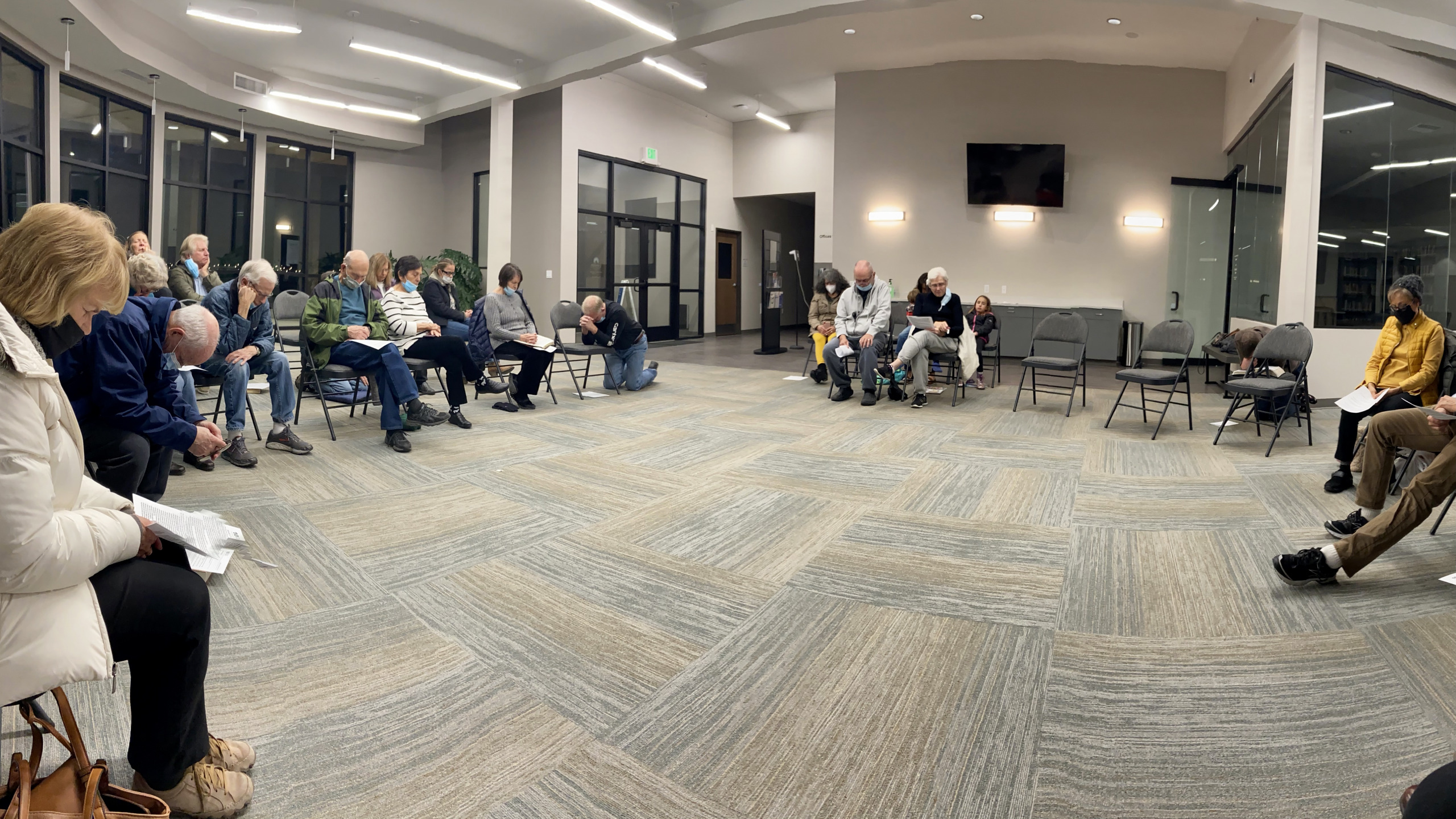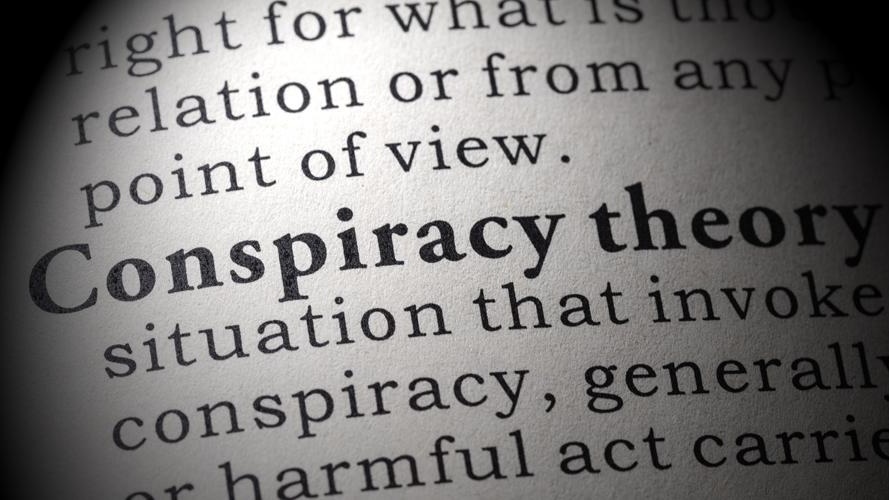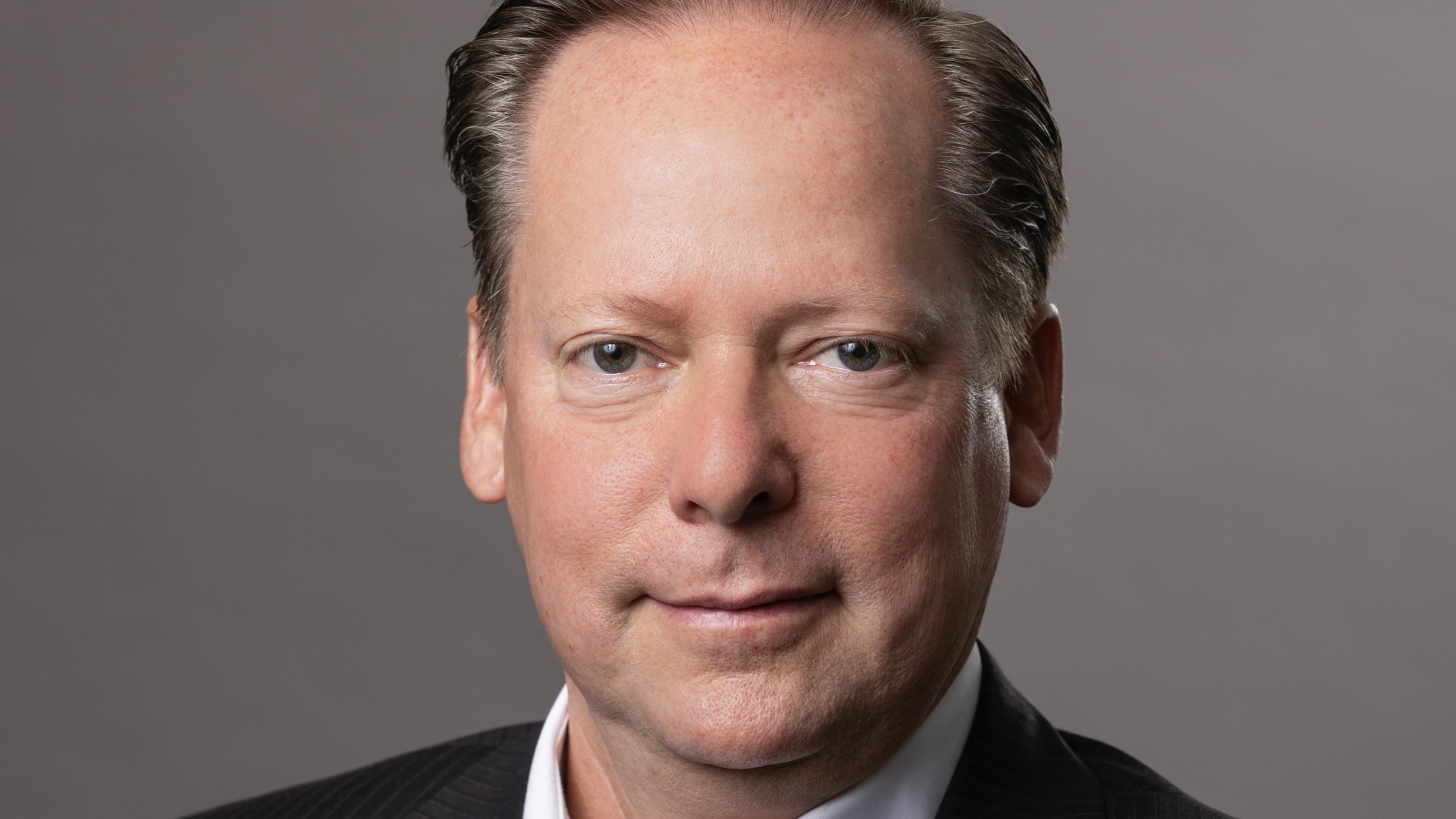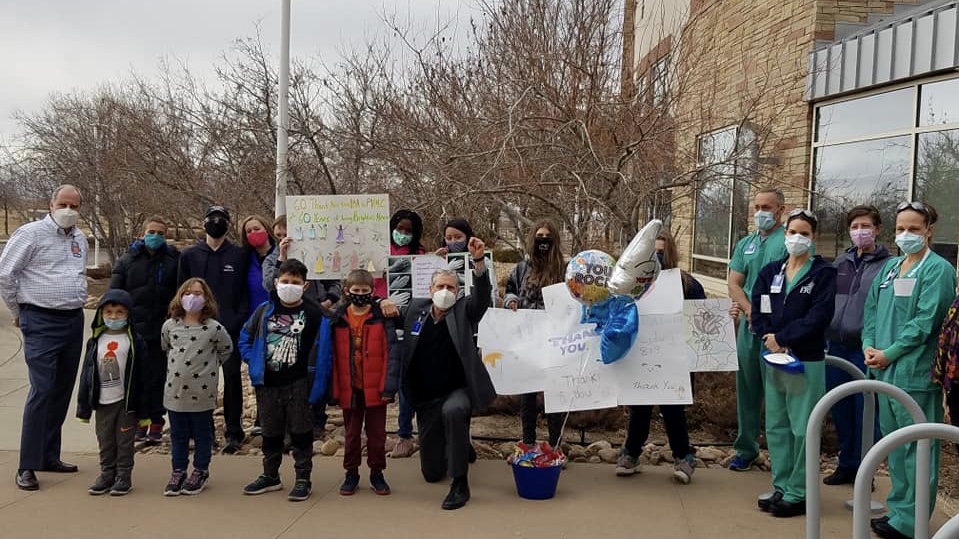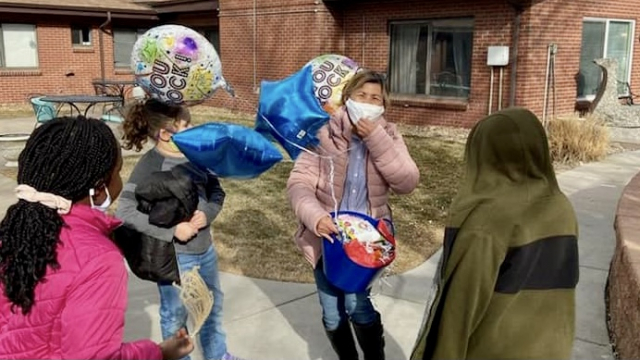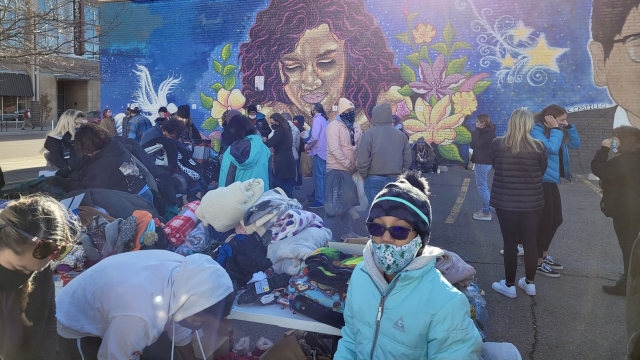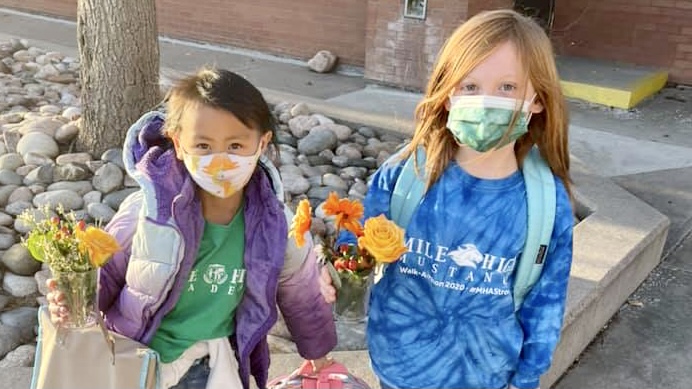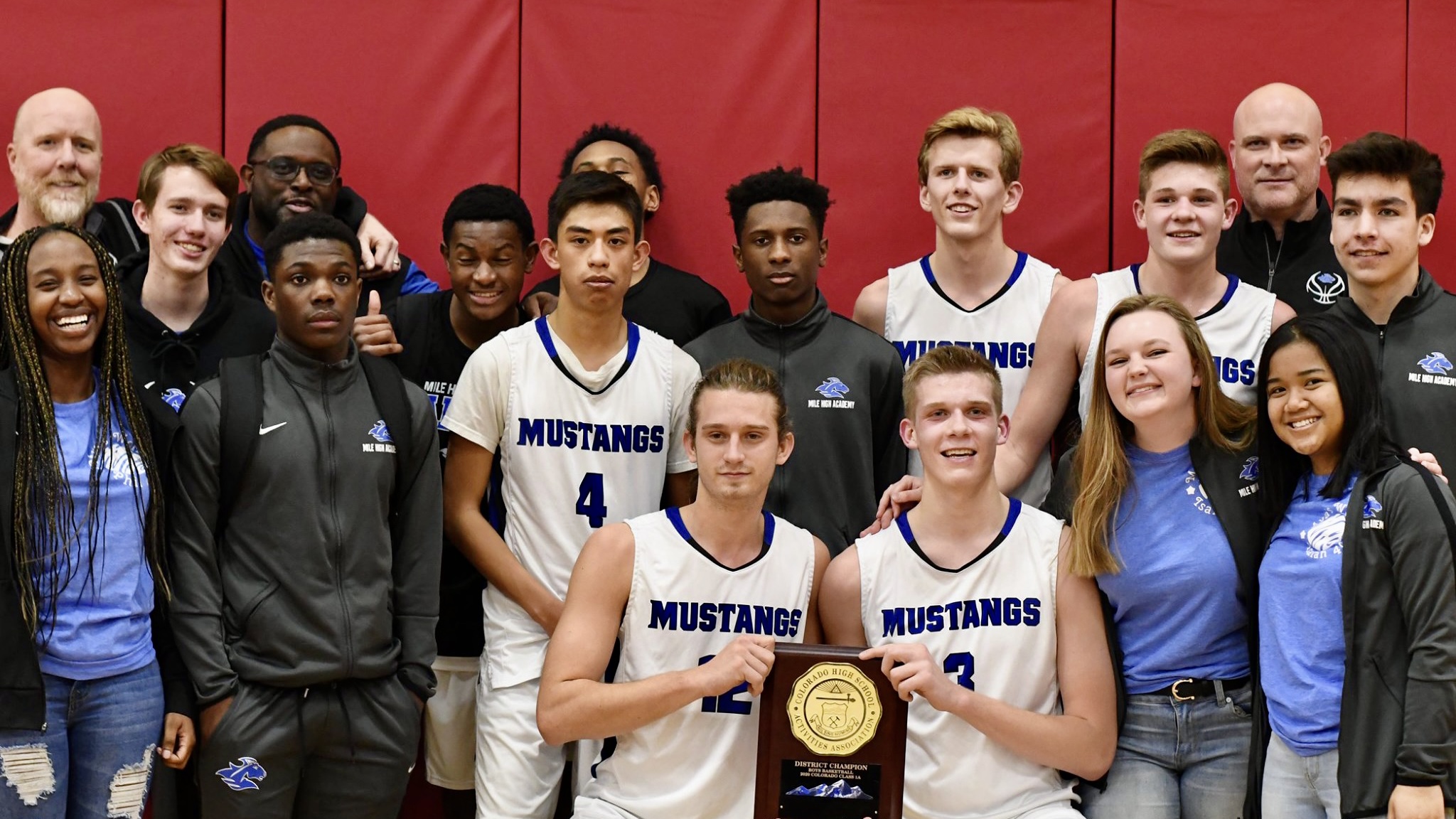By John Skrzypaszek — What a year of unexpected challenges! COVID-19 pressured us to change the way we live and work. The global impact, apocalyptic scenes of gloom and doom, loss of lives, unrest in the economy and politics built up our fears.
Sadly, many have jumped on the conspiracy theory bandwagon, creating a range of speculative assumptions about the future.
In the past three months, the questions I received about last-day events caused me to wonder whether we truly believe God is in control of our future or just in the fancy of speculative assumptions. Social media is filled with topics that seem intended to scare people to heaven. Quotes from Ellen White’s writings are used out of context to support personal conjectures.
These questions challenged me to examine the essence or purpose of the prophetic voice, both from a biblical perspective and the inspired and inspirational voice in Ellen White’s writings.
Biblical Perspective
The Bible describes a specific purpose for the prophetic voice.
First, the prophetic voice provides a pathway of secure, inspirational focus that nurtures our spiritual life. It imparts comfort, encouragement, and hope secured in the reliability of the prophetic message (1 Cor. 14:3; 2 Pet. 1:19).
Second, the essence, or the heart, of the prophetic voice unfolds the panoramic view of God’s saving acts through Jesus. It takes the human mind away from the fear of events driven by the fancy of varied interpretations. Instead, it calls attention to the climactic event — the Messianic event (1 Pet. 1:10-12).
Third, it offers an environment for transformational change, which motivates believers to recapture the depth of God’s incomprehensible love and care in places where our lives get difficult and we can’t see God working (1 Pet. 1:18-21; Isa. 40:9-11).
No wonder Peter’s conviction about the steadfastness of the prophetic voice moves beyond the framework of speculative ideas. “We did not follow cleverly invented stories when we told you about the power and coming of our Lord Jesus Christ, but we were the eyewitnesses of his majesty” (2 Pet. 1:16, NIV). Peter’s account affirms the trustworthiness of God’s unfailing promises.
Commenting on the purpose of God’s communicative intent in Hebrews 1:1-3, theologian F. F. Bruce asserts, “Had God remained silent, enshrouded in thick darkness, the plight of mankind would have been desperate indeed; but now He has spoken His revealing, redeeming and life-giving word, and in His light we see light.”1 He expands his thought even deeper, stating that “divine revelation is thus seen to be progressive — but the progression is not from less true to more true, from less worthy to more worthy, or from less mature to the more mature…. The progression is one from promise to fulfillment.”
God’s involvement in human life encompasses the overarching development of the Messianic promise given to Adam and Eve in the context of fear and confusion (Gen. 3:15). Touching the dirt of human life, God provided comfort and encouragement flowing from His assuring presence and the hope embedded in the Messianic promise. The ongoing purpose of the prophetic voices reminded people about the trustworthiness of God’s promise, and it challenged them to accommodate a visionary view of the Messianic hope (Isa. 42:5-7). A time came when, through Jesus, God touched the dirt of human life again to impart comfort, encouragement, and hope. No wonder that in the context of His promised return (John 14:1-3), Jesus said, “Peace I leave with you; my peace I give you. I do not give to you as the world gives. Do not let your hearts be troubled and do not be afraid” (John 14:27, NIV).
It’s so easy to lose focus on the central element of the Christian faith, namely, the full wealth of spiritual depth embedded in Jesus, the promised Messiah (2 Pet. 1:3, 4).
The Jesus narrative is the fulcrum of Christian comfort, encouragement, and hope. Here one finds the essence of the prophetic voice, which unfolds the panoramic view of God’s saving acts. The Messianic story takes the human mind away from the fear of events, driven by the fancy of varied interpretations. Instead, it challenges us to recapture the depth of God’s incomprehensible care and love, which gently nurtures faith in the places where life becomes difficult. Such a voice continues to remind the church about the trustworthiness of Christ’s promised return (Heb. 10:35–37) entrenched in the reliable authority of the Bible (2 Tim. 3:16; 2 Pet. 1:16, 17).
Ellen White’s Perspective
Why was it expedient for God to raise a prophetic voice in the 19th century? How relevant is that voice to the ongoing journey of faith?
Ellen White clearly understood the essence of her prophetic voice. In 1901 she wrote, “The Lord desires you to study your Bibles. He has not given any additional light to take the place of His Word.”2 Further, she understood her relation to the authority of the Bible. “The Spirit was not given — nor can it be bestowed — to supersede the Bible, for the Scriptures explicitly state that the Word of God is the standard by which all teaching and experience must be tested.”3
Her voice encouraged the movement to immerse life experience in the power of God’s Word. “I have felt to urge upon all the necessity of searching the Scripture for themselves that they may know the truth, and may discern more clearly the compassion and love of God…. There is one central truth to be kept before the mind in searching of the Scriptures: Christ and Him crucified.”4
Her voice shaped a motivational and inspirational framework of God’s designed purpose for Christian living. It called upon the meandering movement to live a spiritually relational life, anchored in the teachings of Jesus, and to demonstrate to the world the transformational impact of God’s grace.
Finally, her emphasis on God’s love and the trustworthiness of His promises aimed to inspire a spiritually missional life.
In the context of her progressive understanding of God’s unconditional love for the world expressed through Jesus, Ellen White expanded the view of mission. It moved beyond the proclamation of specific distinctive doctrines. From about 1900, Ellen White called for an all-inclusive engagement in the mission “not merely by preaching but the deeds of loving ministry.”5 The challenge to an inclusive engagement was a calling to pastors, medical doctors, nurses, teachers, students, and people from every profession and walk of life to share the knowledge of Jesus.6
Ellen White’s prophetic voice focuses on Jesus and provides a view of the practical application of faith. “The work Christ came to do in our world was not to create barriers and constantly thrust upon the people the fact that they were wrong. Though He was a Jew, He mingled freely with the Samaritans, setting at naught the Pharisaic customs of His nation. In the face of their prejudices, He accepted the hospitality of these despised people. He slept with them under their roofs, ate with them at their tables — partaking of the food prepared and served by their hands — taught in their streets, and treated them with the utmost kindness and courtesy.”7
Her voice challenges the church to sway away from a speculative assumption about the future, arising from a reactionary response to current events. Instead, it calls the movement to recapture the power of God’s transforming grace, to maintain an implicit trust in His unfailing promises, and to wait in full confidence for His return. “So do not throw away your confidence; it will be richly rewarded. You need to persevere so that when you have done the will of God, you will receive what he has promised. For, ‘In just a little while, he who is coming will come and will not delay’” (Heb. 10:35-37, NIV). Further, her voice highlights that “in time[s] of confusion and trouble before us, a time of trouble as has not been since there was a nation, the uplifted Savior will be presented to the people in all lands, that all who look to Him in faith may live.”8
— –John Skrzypaszek, DMin, has written for Mountain Views and has recently retired as the director of the Ellen White/Seventh-day Adventist Research Center, and is a lecturer at Avondale University College (2005-2020), Cooranbong, NSW, Australia. Polish by birth, John takes a keen interest in heritage, spirituality and identity studies. He is married to Brenda and has two sons, Raphael and Luke. Email him at: [email protected]
The original version of this commentary was Adventist Record republished by Adventist Review.
1. F. F. Bruce, The Epistle to the Hebrews (Grand Rapids, MI: Eerdmans, 2012), 1, 2.
2. Ellen G. White, Letter 130, 1901, p. 1.
3. Ellen G. White, The Great Controversy(Mountain View, CA: Pacific Press, 1911), vii.
4. Ellen G. White, “Circulation of the Great Controversy,” Ms. 31, 1890, para. 14
5. Ellen G. White, “Enter the Cities,” Ms. 7, 1908 (Feb. 24, 1908), para. 3.
6. Ellen G. White, “How Much Owest Thou Unto My Lord?” Ms. 79, May 1, 1899.
7. Ellen G. White, “Our Duty Toward the Jews,” Ms. 87, August 16, 1907.
8. Ellen White, Testimonies for the Church, Vol. 8 (Mountain View, CA: Pacific Press, 1904), 50.

